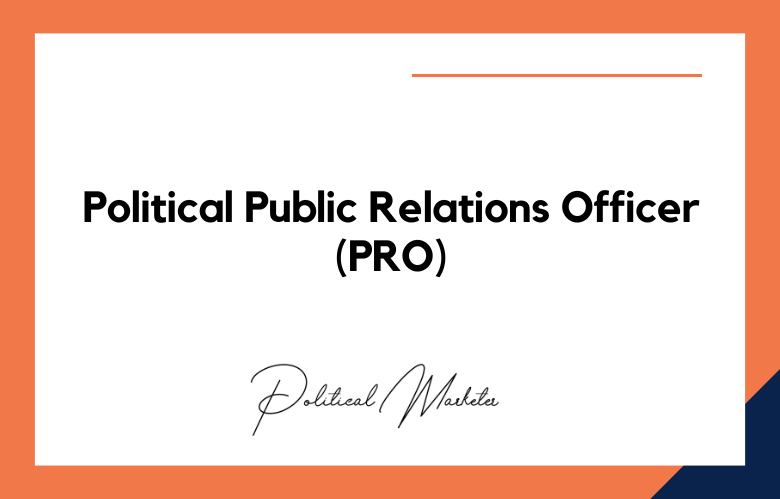Political campaigns’ resource intensity has escalated in the digital age, where integrating advanced technologies, data analytics, and sophisticated communication platforms demands substantial investments in time, capital, and expertise.
Political campaigns now require a multifaceted approach that blends traditional grassroots organizing with cutting-edge digital strategies, making allocating and managing resources more critical than ever.
Resource Intensiveness for Political Campaign: Maximizing Impact
Deploying data-driven tactics, from voter targeting and sentiment analysis to online advertising and social media engagement, necessitates robust IT infrastructure, including servers, databases, and cybersecurity measures. Harnessing artificial intelligence machine learning for predictive analytics or personalized messaging involves not just software and hardware but also the talent capable of developing and managing these complex systems.
Moreover, the dynamic nature of political landscapes requires campaigns to be agile and responsive, adapting strategies based on real-time data and changing voter sentiments. This agility often means a continuous investment in research, monitoring tools, and content creation, further adding to the resource demands.
Balancing the need for advanced digital capabilities with the traditional elements of political campaigning, such as rallies, canvassing, and direct mail, presents a significant challenge. Campaigns must judiciously allocate resources, ensuring that investments in technology and data strategies yield measurable impacts on voter engagement and electoral outcomes.
The resource intensiveness of modern political campaigns reflects the evolving nature of electoral strategies in the digital era. Successfully navigating this landscape requires not only financial resources but also strategic foresight, technological acumen, and a deep understanding of the electorate’s needs and concerns.
- Key Takeaways
- Understanding Resource Intensiveness
- Financial Resources Allocation
- Human Resources in Campaigns
- Technological Tools for Efficiency
- Effective Management Strategies
- Maximizing Impact with Limited Resources
- Legal Aspects of Campaigning
- Opportunities for Students and Graduates
- Best Practices for Resource Allocation
- Final Remarks
- Frequently Asked Questions
- What is the significance of understanding resource intensiveness in a political campaign?
- How can financial resources be effectively allocated in a political campaign?
- Why are human resources crucial in political campaigns?
- What role do technological tools play in enhancing efficiency during a political campaign?
- How can effective management strategies optimize resource utilization in a political campaign?
Political campaigns have evolved significantly, with modern strategies heavily reliant on digital platforms for political outreach and engagement. However, this shift towards online campaigning, targeting campaigners and voter outreach, comes with challenges, particularly regarding resource intensiveness.
Contemporary political campaigns are more resource-intensive because substantial financial investments are needed in advertising, social media management, data analytics, and cybersecurity.
As campaigners strive to reach a wider audience and make a memorable impact in a particular campaign, the demand for resources continues to grow exponentially.
Key Takeaways
Allocate Resources Wisely
Prioritize financial resources towards impactful campaigning practices and targeting, and utilize human resources effectively to maximize efficiency.
Leverage Technology
Incorporate technological tools for data analysis, communication, targeting, and outreach to streamline campaigning practices and reach a wider audience.
Implement Effective Management
Employ sound management strategies to coordinate resources, set goals, and monitor progress for a well-organized campaign, targeting campaigning practices, campaigners, and research.
Maximize Impact
Despite limited resources, focus on targeting efforts, grassroots campaigning, and community engagement to amplify the campaign’s influence.
Stay Compliant
Understand and adhere to legal regulations governing political campaigning to avoid pitfalls and maintain ethical practices.
Engage Students and Graduates
Offer opportunities for students and graduates to contribute their skills, creativity, and energy to campaign efforts, fostering innovation and fresh perspectives.
Understanding Resource Intensiveness
Key Elements
Financial support, staffing, and technology are crucial elements contributing to the resource intensiveness of political campaigns, campaigners, and campaigning practices. Candidates and campaigners require significant funds for advertising, travel, operational costs, and campaigning practices. Moreover, a well-staffed team is essential for organizing events, canvassing voters, and managing communications effectively. The use of advanced technology, such as data analytics and social media tools, also plays a crucial role in modern campaigning practices.
Significance of Resource Allocation
Efficient resource allocation is paramount in achieving campaign objectives. Allocating resources strategically can help reach target demographics, increase voter turnout, and enhance overall visibility in particular campaigns. By investing resources wisely in those with the highest potential impact and practicing campaigning, candidates can optimize their campaign efforts, maximize outreach to voters, and gather information.
Impact of Resource Scarcity
Resource scarcity can significantly hinder campaign effectiveness. Limited funds may restrict advertising opportunities or force candidates to scale back on essential campaigning activities. A staff shortage could lead to agencies in voter outreach, campaigning, and event coordination. Lacking access to cutting-edge technology may put candidates at a disadvantage compared to their competitors.
Financial Resources Allocation
Budgeting Techniques
Political campaigns must employ effective budgeting techniques to ensure expenses are utilized efficiently. Campaigns can maximize their impact by setting clear financial goals and deploying funds strategically. A detailed budget plan can help monitor spending and adjust allocations as needed.
Campaigns should prioritize essential expenses such as advertising, staffing, and event organization. By estimating costs accurately and c ng a realistic budget, they can avoid overspending and ensure resources are used wisely. Regularly reviewing the budget allows adjustments based on changing needs or unexpected expenses.
Fundraising Strategies
Exploring innovative fundraising methods is crucial for securing funds for a political campaign. Campaigns can leverage online platforms such as crowdfunding and events to reach a broader donor base. By diversifying fundraising efforts, campaigns can reduce reliance on traditional sources and tap into new networks of supporters.
Engaging with donors through personalized appeals, storytelling, and transparency can enhance fundraising success. Building strong relationships with donors fosters trust and encourages ongoing support. Utilizing data analytics to target potential donors effectively can optimize fundraising efforts and maximize contributions.
Human Resources in Campaigns
Volunteer Recruitment
Recruit campaigners by promoting opportunities through the campaign website and social media platforms. Utilize training sessions to equip veers with the necessary skills for effective voter outreach and campaigning practices.
Foster a sense of community among volunteers by organizing team-building activities and regular check-ins. Encourage open communication about any challenges or concerns that may arise during the campaign.
Team Delegation
Assign tasks based on individual strengths and expertise to optimize campaign staff performance. Establish clear communication channels to streamline workflow and prevent duplication of efforts.
Delegating responsibilities effectively can help the team work cohesively to achieve campaign goals. Regular feedback sessions help identify areas for improvement and recognize outstanding contributions.
Inclusive Work Environment
Create a welcoming atmosphere where all team members feel valued and respected. Implement diversity and inclusion in ives to celebrate each member’s unique perspectives to the campaign.
Encourage collaboration through brainstorming sessions, group discussions, and practices to leverage the team’s collective knowledge and creativity. Recognize and appreciate each team member’s efforts to boost morale and motivation.
Technological Tools for Efficiency
Data Analytics
Utilize data analytics tools to target specific voter demographics effectively. By analyzing data trends, campaigns tailor their messages to resonate with different population segments. This targeted approach increases the chances of connecting with voters personally.
Implementing data expertise in campaign strategies allows for a more focused allocation of resources. Understanding voter behavior through analysis enables campaigns to prioritize efforts that likely yield positive results. This strategic use of data ensures that every resource is maximized for optimal impact.
Social Media
Integrate social media platforms to engage with a broader audience and increase campaign visibility. They leverage platforms like Facebook and Instagram, allowing campaigning practices to reach a broad demographic quickly and cost-effectively. Engaging content on these platform’s parks discussions attracts supporters and amplifies the campaign’s message.
By leveraging social media skills, campaigns can interact directly with voters in real-time. Responding to comments, sharing updates, and addressing concerns promptly fosters a sense of community and involvement among supporters. The interactive nature of social media enhances transparency and builds trust with the electorate.
Automation Software
Integrate automation software to streamline campaigning processes and improve efficiency, etc. Tools like email marketing automation M systems and chatbots can automate repetitive tasks, freeing up time for campaign staff to focus on strategic decision-making. Automation reduces human error and ensures consistent communication with supporters.
Automation not only saves time but also enhances the accuracy of campaign operations. By automating routine tasks such as using social media posts or sending emails, campaigns can maintain a consistent online presence without manual intervention. This streamlined approach improves productivity and allows teams to allocate resources more efficiently.
Effective Management Strategies
Clear Communication
Establishing clear communication channels is vital to ensuring seamless coordination among team members. Organizations can enhance collaboration and efficiency by utilizing tools like project management software and regular team meetings. Organizations may employ various practices, such as setting up communication protocols or using instant messaging platforms.
Encouraging an open-door policy where team members feel comfortable sharing ideas and concerns fosters a transparent environment. This approach promotes adequate communication flow and enables quick decision-making processes. In contrast, poor communication can lead to misunderstandings, delays, decreased productivity, and campaigning within the campaign team.
Performance Evaluation
Implementing performance evaluation mechanisms allows campaign managers to monitor progress effectively. By setting clear objectives and key performance indicators (KPIs), organizations can track the success of their strategies. Regular performance reviews help identify strengths and areas needing improvement.
Campaign teams can adjust their tactics accordingly by analyzing data from voter engagement rates, donation metrics, or campaigning. This data-driven approach ensures that resources are allocated efficiently based on what yields the best results. Different ways of evaluating performance include conducting surveys, analyzing social media engagement, or tracking website traffic.
Feedback and Adaptability
Encouraging feedback from team members and stakeholders is crucial for refining management strategies throughout the campaign. By creating a culture that values from all levels, organizations can adapt quickly to changing circumstances. Feedback mechanisms can include regu heck-ins, anonymous suggestion boxes, or post-campaign debrief sessions.
Adaptability is key in the fast-paced environment of political campaigns, where unexpected events can arise at any moment. Pivoting strategies based on real-time feedback and emerging trends are essential for staying ahead of the competition. Campaign managers must be willing to embrace change and continuously iterate on their approaches.
Maximizing Impact with Limited Resources
Prioritizing Initiatives
When strategizing campaign initiatives, it is crucial to prioritize based on potential impact and alignment with goals. By focusing on activities that resonate with voters, resources are utilized effectively.
Leveraging Partnerships
Collaborating with local organizations can provide access to additional resources and support for the campaign. These partnerships can maximize the impact of initiatives through shared efforts and expertise.
Optimizing Resource Utilization
Optimizing by concentrating on high-impact activities is essential to making the most of limited resources. By directing resources towards initiatives that have a significant effect, campaigns can achieve their goals efficiently.
Legal Aspects of Campaigning
Compliance Check
Ensure compliance with campaign finance laws and regulations to avoid legal issues during political campaigns. Familiarize yourself with the governing campaigning practices in your region.
Consult legal experts or election law attorneys for guidance on navigating the intricate legal landscape surrounding political campaigns. They can provide valuable insights into ensuring all activities adhere to legal requirements.
Establish transparent reporting mechanisms to maintain accountability and uphold ethical standards throughout the political campaign. Regularly disclose financial information and expenditures to promote transparency.
Ethical Standards
Maintain high ethical standards when conducting campaigning practices to build trust with voters. Upholding integrity is crucial for the success of any political campaign.
Respect individuals’ privacy rights by handling voter data responsibly and securely. Safeguard sensitive information such as other files and personal details to maintain trust with the electorate.
Avoid mixing official business with political campaigning activities to prevent conflicts of interest. Clearly distinguish between duties r d to holding a political office and engaging in campaign-related tasks.
Accountability Measures
Implement accountability measures within your political campaign team to track expenses and ensure funds are used appropriately. Regular audits can help prevent resource misuse.
Utilize secure methods for collecting and storing voter information to protect data privacy. Safeguarding voter data is essential for maintaining the integrity of the electoral process.
Opportunities for Students and Graduates
Gain Experience
Engage in campaign-related activities to gain practical experience and expand your network. By participating in door-to-door canng, phone banking, or social media campaigning, students can understand the inner workings of a political campaign firsthand. This hands-on experience can impact their efforts on the ground.
Explore Diverse Roles
Pursue internships or volunteer opportunities to explore different aspects of political campaigns. Various roles are available for students and graduates, from communications and marketing to research and event planning. Diversifying their experiences can identify their strengths and interests within the campaign landscape.
Networking Opportunities
Attend networking events and career fairs to connect with professionals in the political field. Connecting with campaign managers, consultants, and staffers can open doors to potential job opportunities or mentorship programs. These interactions provide insight into the industry and help students establish valuable relationships for future endeavors.
Best Practices for Resource Allocation
Comprehensive Plan
Develop a comprehensive resource allocation plan that aligns with campaign priorities and objectives. Based on audience demographics and engagement trends, prioritize key areas such as digital marketing, ground operations, and event planning.
Allocate resources efficiently by leveraging data analytics to target specific voter segments effectively. Utilize social media advertising and targeted messaging to maximize reach and impact within budget constraints.
Regular Monitoring
Monitor resource utilization regularly to identify areas for optimization and reallocation. Track spending across different channels and tactics to ensure resources are allocated where they generate the most significant impact.
Implement real-time tracking tools to monitor campaign performance metrics such as conversion rates, click-through rates, and voter sentiment analysis. Use these insights to make informed decisions about reallocating resources for better results.
Evaluation and Adjustment
Evaluate the effectiveness of resource allocation strategies based on campaign outcomes. Analyze key performance indicators such as voter turnout, volunteer engagement, and donation levels to measure the success of resource allocation efforts.
Adjust resource allocation strategies as needed based on ongoing performance evaluations. Shift resources between different ca n activities based on their contribution to overall goals and objectives.
Final Remarks
You now grasp the critical role of resource allocation in political campaigns. By strategically managing financial and human resources, utilizing technological tools efficiently, and adhering to legal guidelines, you can maximize impact even with limited resources. As a student or graduate interested in this field, implementing best practices for resource allocation can set you apart and enhance your contribution to political campaigns.
Take charge of your understanding and application of resource intensiveness in political campaigns. Embrace the opportunities available to you as you navigate this dynamic landscape. Your informed decisions and actions shape the success of future campaigns and propel you toward a rewarding and impactful career in political campaign management.
Resource Intensiveness for Political Campaign: Maximizing Impact – FAQs
What Is Resource Intensiveness in Political Campaigns?
Resource intensiveness refers to the growing need for time, money, personnel, and technology to run competitive political campaigns effectively.
Why Has Campaign Resource Demand Increased?
Modern campaigns require advanced digital strategies, real-time analytics, continuous content production, and cybersecurity, making them more resource-demanding than traditional grassroots efforts.
What Types of Resources Are Crucial for Modern Campaigns?
Key resources include financial capital, skilled human talent, digital tools, voter data systems, and secure technology infrastructure.
How Important Is Efficient Budget Allocation?
Efficient budget planning ensures that spending is balanced across media, operations, fieldwork, compliance, and technology to optimize campaign outcomes.
What Fundraising Strategies Help Meet Resource Needs?
Campaigns benefit from diversified fundraising strategies including online donations, fundraising events, donor networks, and data-driven outreach.
Why Are Human Resources Key to Campaign Success?
Volunteers, strategists, and specialists contribute directly to outreach, voter contact, data analysis, communications, and campaign operations.
How Does Volunteer Recruitment Affect Resource Intensity?
Recruiting and managing a robust volunteer network reduces labor costs and expands grassroots influence and voter interaction capacity.
What Role Does Team Delegation Play in Campaign Efficiency?
Effective delegation aligns skills with responsibilities, streamlines workflows, and allows team members to focus on high-impact tasks.
How Does an Inclusive Campaign Environment Strengthen Resources?
Diverse teams bring broader perspectives, build stronger community trust, and unlock underutilized talent and outreach potential.
What Technological Tools Are Most Effective for Campaigns?
Key tools include CRM systems, voter databases, social media schedulers, email marketing software, and digital advertising platforms.
How Do Data Analytics Impact Resource Allocation?
Analytics provide insights into voter behavior and campaign performance, helping allocate resources more precisely and effectively.
Can Automation Reduce Campaign Costs?
Yes, automation can streamline repetitive tasks like email delivery, social media posting, and donor follow-up, saving time and money.
What Management Strategies Optimize Campaign Performance?
Strong communication, performance tracking, regular reporting, and clear team objectives ensure optimal use of available resources.
How Should Campaigns Monitor Resource Usage?
Campaigns should conduct audits, use tracking tools, and set KPIs to measure how effectively time, money, and manpower are used.
How Can Limited Resources Be Maximized?
Focus on high-impact activities, adopt digital-first approaches, form partnerships, and leverage volunteer support to stretch resources.
What Legal and Ethical Standards Apply to Resource Use?
Campaigns must comply with financial regulations, reporting requirements, and ethical standards around transparency and fair use.
How Can Students and Graduates Support Campaign Resources?
Early-career professionals bring fresh energy, digital fluency, and a willingness to contribute through internships or volunteer roles.
What Are Best Practices for Resource Allocation Planning?
Create a strategy aligned with campaign goals, prioritize core objectives, and regularly assess and reallocate based on outcomes.
How Should Campaigns Evaluate Resource Strategy Success?
Success can be measured through voter engagement, turnout impact, fundraising performance, volunteer participation, and digital reach.
Why Is Strategic Foresight Vital in Resource Management?
Anticipating trends, risks, and opportunities allows campaigns to allocate resources proactively and respond to evolving challenges.









